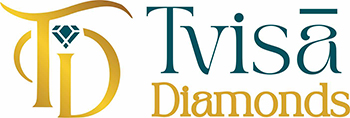- Your cart is empty
- Continue Shopping
Learn about GIA & IGI
What is GIA & IGI?
• Cut
• Color
• Clarity
• Carat Weight
• Carat weight of the diamond
• Color grade (how white or tinted it is)
• Clarity grade (how clear or included it is)
• Cut grade (how well it’s shaped and polished)
• Measurements and proportions
• Shape and cutting style
• A unique certificate number
• Sometimes a laser inscription on the diamond’s girdle
• Diagram of clarity characteristics
This certificate helps you verify the quality, value, and authenticity of your diamond, giving you confidence in your purchase.
Proof of Authenticity:
Certificates confirm whether a diamond is natural or lab-grown, and whether it’s treated or untreated. This protects you from buying a synthetic or imitation stone when you’re paying for a real diamond.
Verified Quality (4Cs Grading):
The certificate provides an expert, unbiased assessment of the 4Cs — Cut, Color, Clarity, and Carat. These grades directly affect the diamond’s value, beauty, and price.
Without certification, you might overpay for a lower-quality stone without even knowing.
Fair Pricing & Value Comparison:
With a certified diamond, you can easily compare prices between sellers. You’re not guessing — you’re comparing based on trusted, standardised grades, which helps you make smarter buying decisions.
Transparency & Buyer Confidence:
When you receive an IGI certificate, you know exactly what you’re buying. It removes doubt, increases transparency, and ensures trust between buyer and seller — essential for both retail and online purchases.
Easier Resale, Insurance & Appraisal:
Most insurance companies and appraisers require certification from a reputable lab like GIA/IGI. Certified diamonds also have better resale value, as future buyers will want proof of the diamond’s quality.
Laser Inscription for Security:
Many certified diamonds have their unique certificate number laser-inscribed on the girdle (edge). This small marking can be seen under magnification and serves as an added layer of authenticity and traceability.
